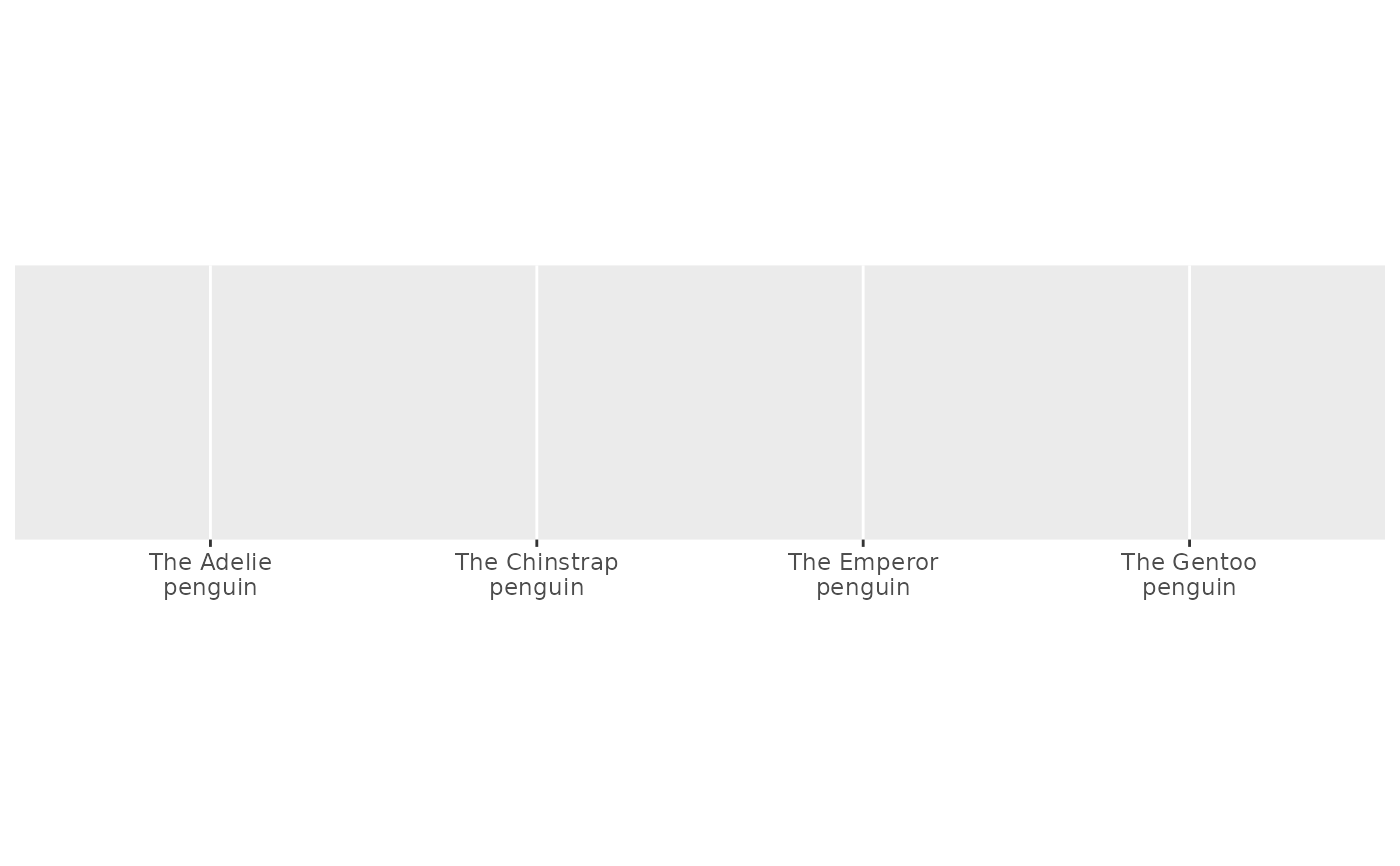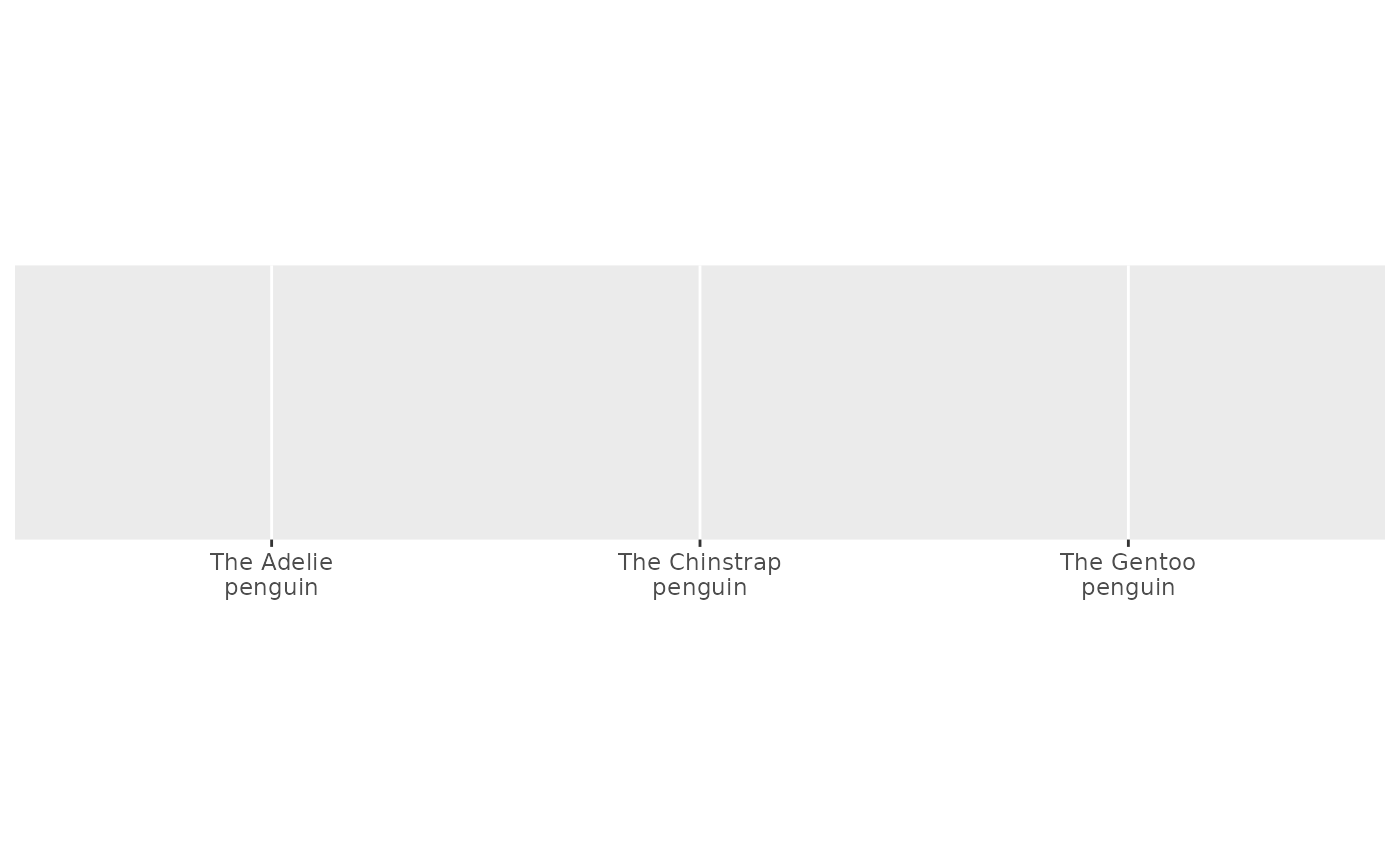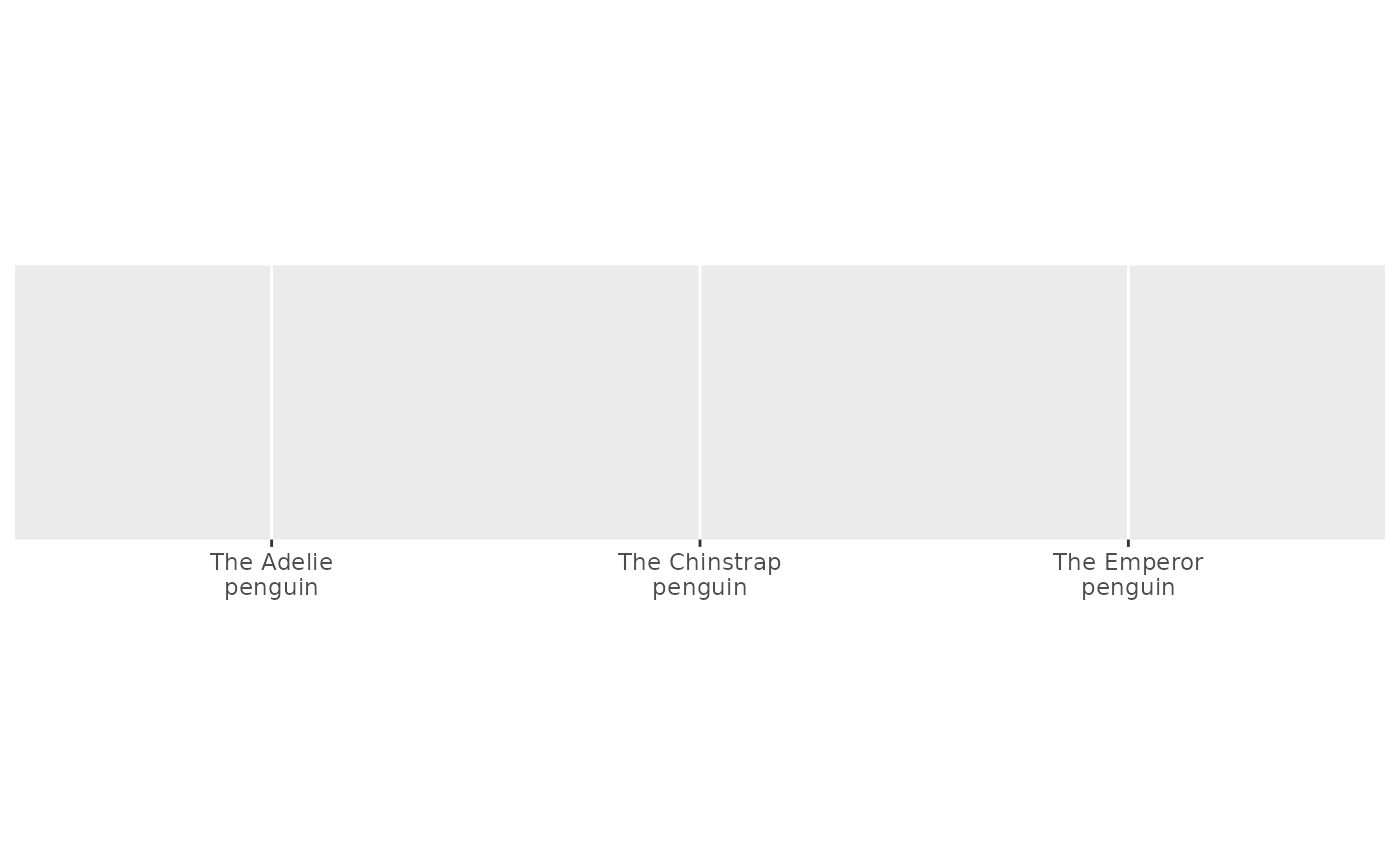Use label_glue() to perform string interpolation using the glue
package. Enclosed expressions will be evaluated as R code.
Arguments
- pattern
A glue string used for formatting. The
xvariable holds the breaks, so that"{x}"(default) returns the breaks as-is.- ...
Arguments passed on to
glue::glue().- parse
Whether to return labels as expressions.
- .envir
[
environment:parent.frame()]
Environment to evaluate each expression in. Expressions are evaluated from left to right. If.xis an environment, the expressions are evaluated in that environment and.enviris ignored. IfNULLis passed, it is equivalent toemptyenv().
Value
All label_() functions return a "labelling" function, i.e. a function that
takes a vector x and returns a character vector of length(x) giving a
label for each input value.
Labelling functions are designed to be used with the labels argument of
ggplot2 scales. The examples demonstrate their use with x scales, but
they work similarly for all scales, including those that generate legends
rather than axes.
See also
Other labels for continuous scales:
label_bytes(),
label_currency(),
label_number_auto(),
label_number_si(),
label_ordinal(),
label_parse(),
label_percent(),
label_pvalue(),
label_scientific()
Other labels for discrete scales:
label_dictionary(),
label_parse(),
label_wrap()
Examples
# Example variables
animal <- "penguin"
species <- c("Adelie", "Chinstrap", "Emperor", "Gentoo")
# Typical use, note that {x} will become the breaks
demo_discrete(species, labels = label_glue("The {x}\n{animal}"))
#> scale_x_discrete(labels = label_glue("The {x}\n{animal}"))
 # It adapts to the breaks that are present
demo_discrete(species[-3], labels = label_glue("The {x}\n{animal}"))
#> scale_x_discrete(labels = label_glue("The {x}\n{animal}"))
# It adapts to the breaks that are present
demo_discrete(species[-3], labels = label_glue("The {x}\n{animal}"))
#> scale_x_discrete(labels = label_glue("The {x}\n{animal}"))
 # Contrary to directly glueing species + animal, which results in mislabelling!
demo_discrete(species[-3], labels = glue::glue("The {species}\n{animal}"))
#> scale_x_discrete(labels = glue::glue("The {species}\n{animal}"))
# Contrary to directly glueing species + animal, which results in mislabelling!
demo_discrete(species[-3], labels = glue::glue("The {species}\n{animal}"))
#> scale_x_discrete(labels = glue::glue("The {species}\n{animal}"))
